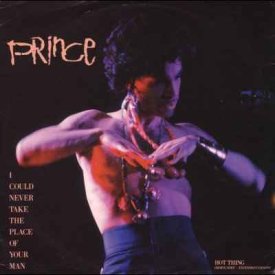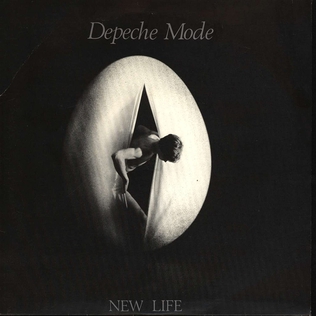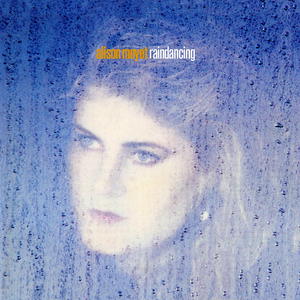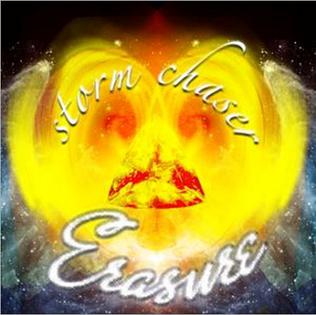
"Mickey" is a song recorded by American singer Toni Basil for her debut studio album, Word of Mouth (1981). It was first recorded by the pop group Racey, titled "Kitty". Mike Chapman and Nicky Chinn wrote the song, while production was helmed by Greg Mathieson and Trevor Veitch. Basil's version is new wave, featuring guitar, synthesizers and cheerleading chants.

"Venus" is a song by Dutch rock band Shocking Blue, released as a single in the Netherlands in the summer of 1969. Written by Robbie van Leeuwen, the song topped the charts in nine countries.

"I Could Never Take the Place of Your Man" is a song written and recorded by American musician Prince. It was released as the final single from his ninth studio album Sign o' the Times (1987), becoming the third top-ten hit off the album. It has since been covered by numerous artists.

"Because the Night" is a rock song from 1977 written by Bruce Springsteen and Patti Smith which appears on the 1978 Patti Smith Group album Easter. On March 2, 1978, the song was released as a single, and was commercially successful, reaching No. 13 on the Billboard Hot 100 chart and No. 5 in the United Kingdom, which helped propel Easter to mainstream success.

"Heaven" is a song by the Canadian singer and songwriter Bryan Adams recorded in 1983, written by Adams and Jim Vallance. It first appeared on the A Night in Heaven soundtrack album the same year and was later included on Adams' album Reckless in 1984. It was released as the third single from Reckless and reached number one on the U.S. Billboard Hot 100 in June 1985, over a year and a half after the song first appeared on record. The single was certified Gold in Canada in 1985.

"New Life" is the second single by English electronic music band Depeche Mode from their debut studio album Speak & Spell, originally released on 5 June 1981. It was not commercially released in the United States.

The Lover Speaks were an English new wave duo consisting of David Freeman (vocals) and Joseph Hughes. They wrote and performed the original version of the song "No More 'I Love You's'", covered by Annie Lennox in 1995 for her Medusa album, and which she took to number 2 in the UK Singles Chart.

Raindancing is the second solo studio album by English singer Alison Moyet, released on 6 April 1987 by CBS Records. It reached No. 2 on the UK Albums Chart and features the singles "Is This Love?", "Weak in the Presence of Beauty", "Ordinary Girl" and "Sleep Like Breathing". In the United States, Raindancing was released by Columbia Records with a different cover art and a reordered track listing.

"Paninaro" is a song by English synth-pop duo Pet Shop Boys, originally a B-side to the 1986 single "Suburbia". In 1995, a re-recording titled "Paninaro '95" was released to a wider market, to promote the duo's B-side compilation album Alternative, though only the original version was included on the compilation.

"Twilight World" is a song by the British pop act Swing Out Sister. The song is included on their debut album, It's Better to Travel. It was written by the members of the group at that time, Andy Connell, Corinne Drewery and Martin Jackson.

"Press" is a song by the English rock musician Paul McCartney. It was released as the lead single from his sixth solo studio album, Press to Play (1986), being McCartney's 37th single. The single has "It's Not True" as its B-side, which was only included on CD releases of Press to Play.

Storm Chaser is an EP recorded by English synth-pop duo Erasure. It was released in the UK and Germany by Mute Records on 24 September 2007 and a North American release followed on October 2. The EP is available on CD, limited edition 7-inch vinyl and digital download.

"No More 'I Love You's'" is a song written by British musicians David Freeman and Joseph Hughes and recorded by them as the Lover Speaks. It was released in June 1986 as the lead single from their self-titled debut album. The song was covered by the Scottish singer Annie Lennox and became a commercial success for her in 1995, reaching number two on the UK Singles Chart.

"Weak in the Presence of Beauty" is a song written by Michael Ward and Rob Clarke, and originally recorded by their band, Floy Joy. It was released in 1986 as the lead single from their album of the same name. In 1987, English singer Alison Moyet released a version of the song which was a hit across Europe and Australasia.
David Freeman is a British singer, musician and songwriter, best known for being a member of the new wave duo the Lover Speaks during the 1980s.

"Get Lucky" is a song by American singer Jermaine Stewart, released in 1988 as the second single from his third studio album Say It Again. It was written by Errol Brown and Simon Climie, and produced by Aaron Zigman and Jerry Knight. For its release as a single, "Get Lucky" was given a remix by Phil Harding. The song was a commercial success, particularly in Europe, but failed to chart in the United States, although it did reach No. 12 on the Billboard Dance Club Songs chart. It reached No. 13 in the UK, and No. 6 in both Switzerland and Germany.
"Say It Again" is a song written by Bunny Sigler and Carol Davis. It was originally recorded and released as a single by American singer Shawn Christopher in 1983. In 1984, American singer Lou Rawls recorded a version for his album Close Company. In 1985, American singer Rége Burrell released his own version of the song as a single from his album Victim of Emotion. In 1986, American female R&B vocal trio Sinnamon recorded their own version, which was released as a single. The best known version is the 1987 recording by American singer Jermaine Stewart, released as a hit single from his album of the same name.
"Come Together" is a song by Scottish rock band Primal Scream, released in August 1990 as the second single from their third studio album Screamadelica (1991). The song peaked at number 26 on the UK Singles Chart. The single versions of the song, mixed by Terry Farley, are radically different from the album version which was mixed by Andrew Weatherall. Whilst the Farley mix follows a standard pop song structure, Weatherall's extended album mix is more influenced by house music and dub mixes and features none of Bobby Gillespie's vocals. In the US, the single was released as a double A-side with the band's previous single "Loaded".

The Lover Speaks is the self-titled debut studio album from British duo The Lover Speaks, released by A&M in 1986.
Joseph Hughes is a British bassist and songwriter, best known for being a member of the punk band the Flys and the new wave duo the Lover Speaks.
















